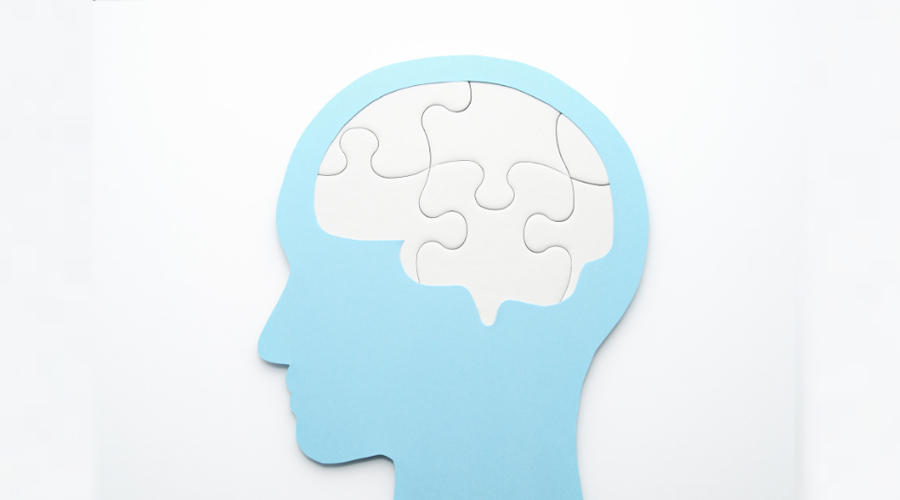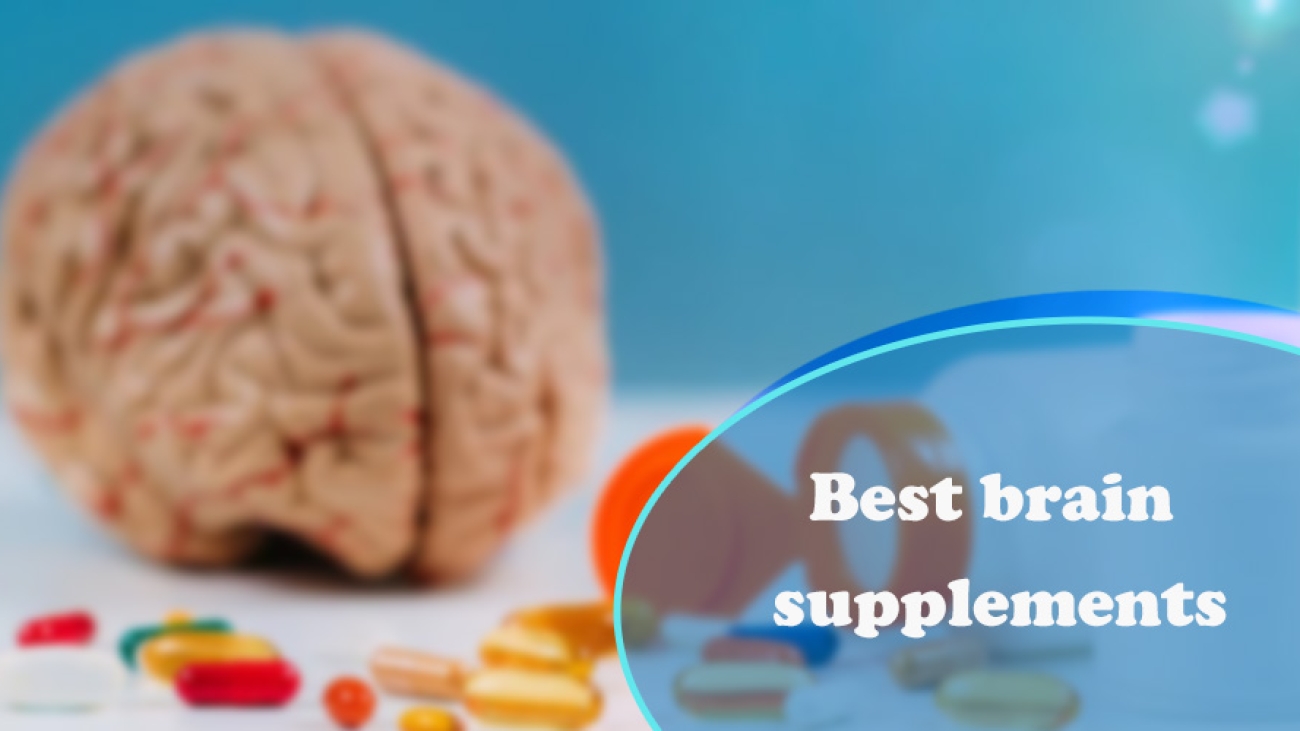Brain supplements are developed to help improve cognitive function There’s no question that brain health supplements can be helpful, but which one is the best?
When looking for a brain supplement, it is important to consider what you are looking for. Different people have different needs when it comes to brain dietary supplements. So, it is important to find one that meets your specific needs. It’s important to do more research before taking any supplement.
There are many different brain supplements on the market today. But which one is the best for you? In this article, we will discuss the best brain supplements for different types of people.
Please read on to learn about the best brain supplements for a healthy brain and healthy lifestyle.
Contents
Brain supplements that help improve cognitive functioning

A brain supplement can be a valuable tool for improving cognitive functions. However, It’s important to note that supplements are not a cure-all, and should only be used in conjunction with other forms of treatment, such as therapy or medication.
These dietary supplements can improve brain function in a variety of ways, depending on the supplement. Some can help improve focus and attention, while others can help improve memory and thinking skills.
Brain health supplements that help improve brain function are becoming more popular as people learn about the benefits they provide. Below are the best brain supplements that are proven useful in improving brain function.
CDP-choline

Choline is a nutrient that can be found in certain foods. It can be found in certain types of meat and fatty fish. It is important for the body to have enough choline because it helps to make neurotransmitters and phospholipids. Choline is also important for brain function and memory.
CDP-choline for brain function
CDP-choline is an important nutrient that can help improve brain function. CDP-choline has been shown to improve brain function in mice. CDP-choline is a naturally occurring molecule found in the human brain. It is important for the growth, survival, and function of neurons. CDP-choline can also protect the brain from damage caused by age, disease, and toxins.
CDP-choline is a nutrient that has been shown to improve brain function in adults. It has been found to improve focus or attention span, working memory, cognitive function, problem-solving, and thinking skills. CDP-choline can also help to prevent age-related decline in memory.
Curcumin

Curcumin is a natural compound found in curry and turmeric. It is a natural remedy that has been shown to be effective in treating a variety of diseases and conditions. It is an anti-inflammatory and antiseptic agent, which can help to reduce the symptoms of conditions such as cancer, joint pain, and arthritis.
Curcumin for brain disease prevention and treatment
It has been studied for its potential to improve brain function, and there is some evidence that it can. Curcumin has been shown to protect the brain from damage caused by free radicals, and it can also help to improve brain function.
Curcumin has been shown to improve brain function in animal studies. It has been shown to improve brain function in rodents. Curcuminoids can cross the blood-brain barrier and bind to proteins in the brain, which may help protect the brain from damage.
Curcuminoids provide multiple benefits for the brain. They are being studied as potential treatments. It can be particularly beneficial in conditions such as Alzheimer’s disease, Parkinson’s disease, stroke, and neurodegenerative disorders.
The mechanisms by which curcuminoids improve brain function are not fully understood, but they likely involve enhanced communication between neurons and inhibition of inflammation and oxidative damage.
Vitamin E

Vitamin E is a water-soluble vitamin essential for human health. It has many functions in the body, including protecting cells from damage and helping to maintain nerve function. The benefits of vitamin E include the risk reduction of heart disease, cancer, and Alzheimer’s disease.
Vitamin E is a nutrient found in plant-based foods. Some foods that contain vitamin E are dark leafy greens, nuts, seeds, and soy products.
Vitamin E and brain health
Vitamin E is a nutrient that has been linked with brain health. Vitamin E improves cognitive function through a number of mechanisms. It enhances nerve growth and regeneration, protects neurons from damage, and helps to reduce inflammation.
Vitamin E supplements have been shown to help protect the brain against damage from free radicals, a type of molecule that can cause cell damage and can lead to diseases like Alzheimer’s. It reduces the risk of developing this type of disease and other forms of dementia.
A study found that people who had the lowest levels of vitamin E were more likely to have a cognitive decline over time. Researchers suggest that adding vitamin E to your diet may help maintain cognitive function in older adults.
According to the Mayo Clinic, adults need around 40 milligrams of vitamin E daily.
B Vitamins

The B vitamins are a group of eight vitamins that are essential for human health. These vitamins work together to help the body convert food into energy, and they play important roles in the body’s metabolism. They can be found in foods such as fruits, vegetables, and grains.
B Vitamins for overall brain health
B vitamins are essential for the proper functioning of the brain. They have been shown to help improve brain function. These vitamins can help to support nerve health, enhance brain function, and promote mental well-being.
Taking these vitamins can help to reduce the risk of age-related memory and cognitive decline and Alzheimer’s disease. Deficiencies in these vitamins can lead to mild cognitive impairment, memory problems, and even dementia.
B vitamins are essential not only for brain function but also its overall health. They play a role in energy production, learning and memory, and nerve growth. A lack of these vitamins can lead to problems such as memory loss, cognitive decline, and nerve damage.
The best way to ensure that you’re getting enough vitamins is to include them in your diet. The most effective method to get them in our body needs is through food sources, such as fruits, vegetables, and grains.
However, it’s also important to note that not all these vitamins are created equal. Some, like folic acid, are more important for preventing neural tube defects than they are for supporting cognitive health.
Taking a supplement can also be beneficial if you don’t eat enough foods that contain them. People who need to take additional vitamins may take supplements to meet their daily requirements.
Remember. It is always important to talk with a doctor about your individual needs.
Ginkgo Biloba

Ginkgo biloba is a tree native to East Asia and has been used for medicinal purposes for centuries. The tree contains terpenes and flavonoids that have anti-inflammatory properties, and it also has cognitive benefits. They make Ginkgo Biloba an effective treatment for conditions like dementia, memory loss, and depression.
Gingko Biloba for elderly dementia patients
The ancient Chinese believed that the Ginkgo Biloba tree leads to improved brain function. Now there is scientific evidence to support this. Ginkgo Biloba has been found to help improve memory and reaction time, as well as increase mental agility and productivity.
Ginkgo biloba is a plant species that has been used for centuries in traditional Chinese medicine to boost brain function. A study published in the journal Phytotherapy Research found that ginkgo supplementation can enhance cognitive performance and reduce anxiety in people with dementia.
The traditional herbal remedy Ginkgo Biloba has been shown to improve brain function in elderly patients with dementia. Ginkgo is a plant-based supplement that contains terpenes, which have been shown to promote brain health and improve brain function.
Caffeine

Caffeine is a psychoactive drug found in many plants and animals. It is most commonly found in coffee, tea, and chocolate. Caffeine is also produced naturally by the body and is used to treat conditions like anxiety and insomnia.
Caffeine and mental alertness
Caffeine is a psychoactive substance found in many plants, beverages, and foods. It is widely used as a stimulant and has been shown to improve brain function. It has been shown to improve brain function and protect against dementia.
It is a natural stimulant that has been shown to improve brain function, particularly in the areas of attention and memory. From a cognitive standpoint, caffeine improves performance on tasks requiring focus and memory. It also increases alertness, which can lead to better mental performance.
Caffeine works by increasing levels of dopamine and serotonin, two neurotransmitters responsible for mood regulation.
L-theanine

L-theanine, a natural amino acid found in green tea, has been shown to have cognitive benefits. In one study, L-theanine was found to improve attention and working memory in healthy adults. L-theanine may also help improve sleep quality.
L-theanine for anxiety, depression, and sleep
Scientific research has shown that L-theanine can improve brain function by increasing activity and communication between different parts of the brain. The amino acid is found in certain tea leaves and is thought to work by blocking the action of glutamate, a neurotransmitter associated with anxiety and depression.
L-theanine increases alertness and concentration. It can be used to treat conditions like anxiety and depression and helps to improve focus and concentration. L-theanine has also been shown to improve sleep quality and promote nerve growth.
Ginseng

Ginseng is an herbal supplement that has been used in East Asian medicine for centuries. It is a popular choice for athletes and people who are looking to improve their energy levels and performance.
Ginseng also has a number of health benefits, including reducing inflammation and inhibiting the growth of cancer cells.
Ginseng for adult cognitive performance
Ginseng is a plant that has been used for centuries in Asia to improve brain function. Ginseng has been traditionally used for centuries in East Asia for its cognitive benefits.
A recent study suggests that ginseng may help improve brain function, including memory and learning ability. Researchers believe that the herb’s effects on the brain may be due to its ability to improve blood flow and oxygenation.
Ginseng is a popular supplement for those looking to improve brain function. Recently, studies have shown that ginseng can also improve mood and cognitive performance in older adults. The studies suggest that this herb may particularly help to improve memory and brain function in the elderly and even reverse some signs of dementia.
Ginseng is also thought to boost memory and attention span. Ginseng is a safe and affordable supplement, and it has few side effects.
Omega-3s

Omega-3 fatty acids are essential for human health and have been shown to reduce the risk of heart disease, stroke, cancer, and other chronic illnesses. However, many people don’t get enough omega-3s through their diet. Taking a supplement can help increase your intake of these beneficial fats.
Recent studies have shown that omega-3 fatty acids can help improve brain function. Omega-3s are essential for the development of the brain and can help decrease inflammation and improve blood flow to the brain. Interestingly, research shows that people who consume the most omega-3s have lower rates of dementia and Alzheimer’s.
Omega-3 fatty acids are essential for brain health, and the benefits of consuming them go beyond preventing heart disease. While evidence is still preliminary, omega-3s may also help boost memory and brain function, regulate mood and anxiety, protect the brain from damage caused by inflammation, and reduce the risk of developing dementia.
Omega-3 fatty acids are a type of polyunsaturated fatty acid. They are important for brain function because they help to prevent inflammation and promote the growth of brain cells. Consumption of omega-3s has been linked with lower rates of cognitive decline and Alzheimer’s, and may also protect against other mental illnesses such as schizophrenia.
With these benefits in mind, it’s no wonder omega-3s are being touted as one of the best foods for staying sharp mentally into old age.
Bear in mind. It is important for everyone to get enough omega-3s to support healthy brain function.
Conclusion
To summarize, the best dietary supplements for brain function are those that contain CDP-choline, curcumin, vitamin E, B Vitamins, Ginkgo Biloba, caffeine, L-theanine, ginseng, and omega-3s.
Taking supplements promote enhanced memory, focus, and overall thinking skills. If you are looking for a potent brain booster, consider taking a dietary supplement that contains these ingredients.
However, there are many different kinds of brain supplements introduced on the market. Some supplements are more effective than others. So, do your homework before purchasing anything.
FAQ
What is the best vitamin for the brain?
There is no one-size-fits-all answer to this question. Every person’s needs and preferences will vary, so it’s important to consult a doctor or nutritionist before starting any new supplement regimen. However, some of the most popular brain vitamins include B12, folic acid, and vitamin D.
What supplements do I need for my brain?
There are many supplements that people take to improve their brain function, but what do you need to know to make the right choices for your brain?
You likely don’t need a multivitamin or mineral supplement, but you might want to consider taking omega-3 fatty acids. If you’re struggling with memory issues, consider taking an acetylcholinesterase inhibitor such as Donepezil or Cholinesterase Inhibitor Complex (ChiC).
Finally, if you have a history of head trauma or any other neurological condition, be sure to speak with your doctor before starting any supplements.
What is the number one supplement for brain health?
The number one supplement for brain health is omega-3s. Omega-3s are essential for brain function, memory, and overall brain health. They are found in fatty fish like salmon, mackerel, and tuna, as well as plant sources like nuts and seeds. Adding Omega-3s to your diet can help reduce the risk of developing dementia, Alzheimer’s, and other cognitive disorders.
Can vitamins heal your brain?
A lot of people believe that vitamins can help heal the brain and protect brain cells. Some experts say that taking specific vitamins, such as B12 and vitamin D, can improve brain functions in adults. However, there is not enough evidence to support this claim.
Additionally, it’s important to note that not all supplements are created equal when it comes to brain health. Some may be more beneficial than others.
What is the brain pill?
The brain pill is a new and controversial form of medicine, claiming to help enhance cognitive function. Proponents of the brain pill say that it can help people with conditions like Alzheimer’s, dementia, and age-related memory impairment.

